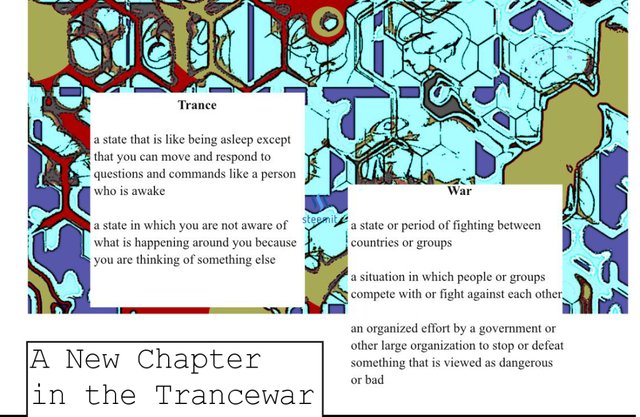
Have you ever found a container of leftover stew in the back of your refrigerator, opened it, and discovered a putrid mess?
From where I stand, the US political establishment is in a similar condition as such a stew, and the recent elections allowed a bit of this rot's stench to escape its container.
Political leaders are now calling on Americans to place the lid back on this mess of nasty leftovers, return it to the fridge, and trust them to get the matter sorted. Their disingenuous pleas for national unity are being broadcast far and wide by consolidated media. But this rotten establishment is more problematic than a bit of spoiled food. And, having gotten a good whiff of our system's stink, many of those whose hopes and dreams were bound to the illusory assumption that things could get better by political means have found themselves disillusioned.
This shedding of illusions, while painful for some, is not a bad thing. In fact, it is inherently empowering, because disillusionment paves the way for honest reassessment, which forms the basis for better decision making.
Before Trump won the presidency, I wrote that:
"the hyperinflation of this [election]'s salience in our societal mind opens up a typically-closed space in average people's thinking - the space to consider big things, like where we are, how we got here, and what future might now come into being as a result of this path that we are on."
When invited to consider these big things, Americans appear to have concluded that the status quo is bullshit. This may actually be progress.
More than anything, the election of Mr Trump to the presidency looks to me like a vote against business as usual. Had the DFL been slightly less corrupt, and run Sanders rather than Clinton as their candidate, this vote against business as usual may well have resulted in a Sanders presidency. But such an outcome would not have solved the systemic problems in which the US is mired, and would likely have produced a similar level of disillusionment in the US as Trump's victory seems to have - just in different people.
In any event, this additional disillusionment will fully blossom in our societal mind soon enough - when those who have been tricked by media theater into imagining that a Trump presidency will challenge business as usual in Washington and on Wall Street discover just how empty most of their preferred candidate's rhetoric has been. This group may even become just as upset as those presently shouting their discontent in the streets, but will naturally express their dissatisfaction in other ways; according to the social norms of their own peer groups.
A disillusioned population that has lost faith in the status quo is a population on the edge of deep and massive change.
The political dimensions of such a change will likely not become evident for quite some time. Neither will the broad economic implications of this change show up in any easily identifiable form in the near future. But its psychosocial impacts are already beginning to spill out of our collective unconscious and into everyday life. Crisis hotlines are fielding record numbers of calls, for example, and a number of prestigious US universities appear to be hosting mass emotional breakdowns.
In this atomized society, where members of privileged classes are in the habit of feeling personally victimized by every unhappy moment that comes their way, and actual victims of serious mistreatment are routinely ignored or attacked for speaking up about real power abuses, such things - and their implications - are bound to be widely and fatally misinterpreted.
This is a recipe for profound misunderstanding, and the trancewar's foot soldiers already appear to be losing control of the public narrative. It may take them a while to regroup, during which time there exists a rare window of opportunity to observe - and perhaps begin to make new sense of - the power dynamics at play behind the curtain of media spectacle. Whether people use this opportunity to grow shared understanding of the world and our place in it, or treat it as fuel to pour on the fires of interpersonal conflict smoldering throughout our fragmentary culture, is anybody's guess.
It makes me wonder about the autism epidemic and how large companies are ramping up and setting up systems to incorporate large percentage of their workforce to be autistic. We need to question and challenge if we want real change.
Downvoting a post can decrease pending rewards and make it less visible. Common reasons:
Submit